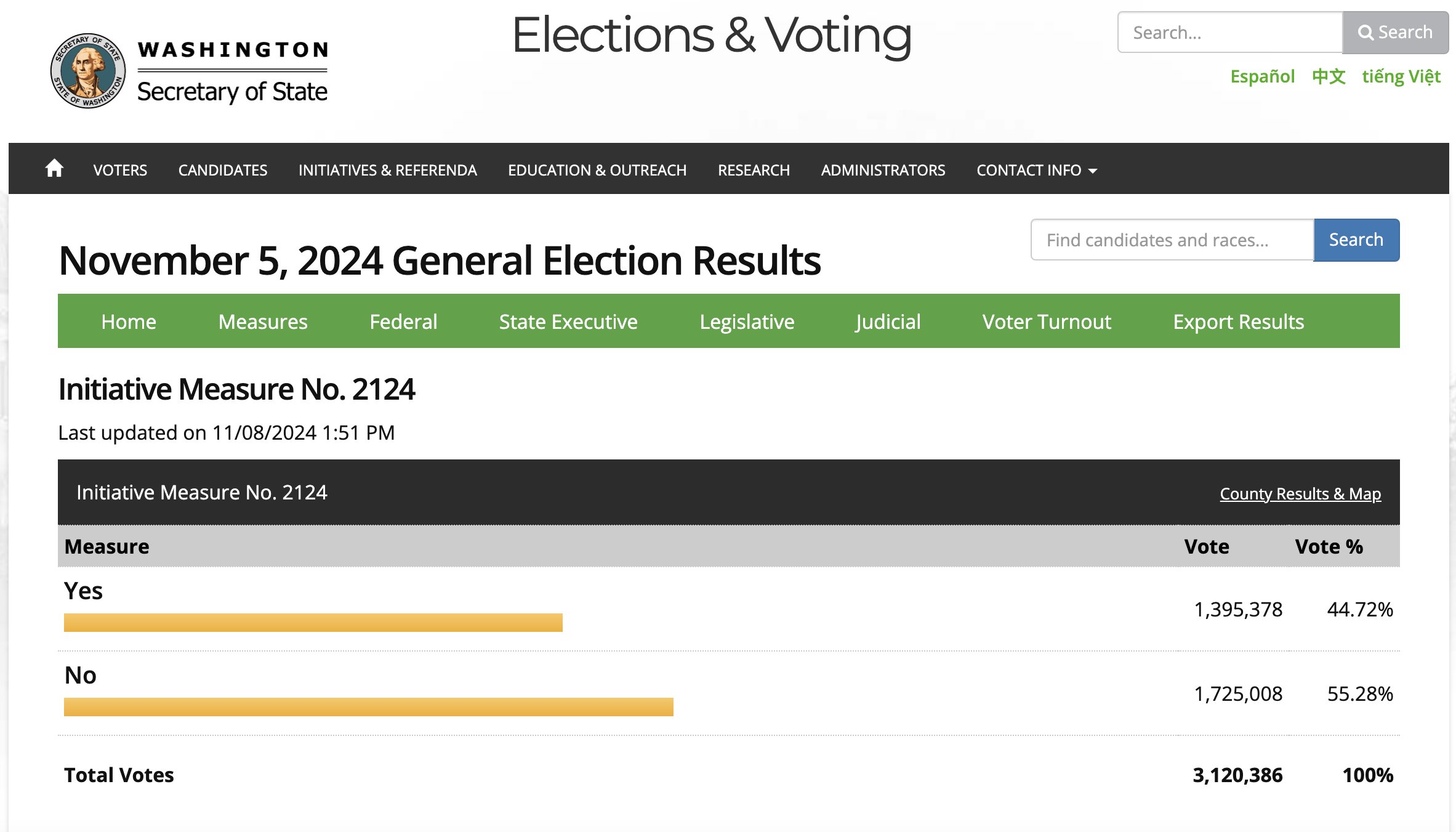Lawmakers concluded the 2019 Legislative Session passing two bills that attack workers in our state. Both bills were top priority for unions and Governor Inslee wasted no time signing one of them (HB 1575) into law today.
HB 1575 makes it easier for government unions to deduct union dues from public workers’ paychecks and significantly harder for those workers to exercise their new First Amendment Janus right to stop paying the union for representation they do not agree with or want.
The restrictions on when and how a worker can exercise their Janus rights is as much a violation of their constitutional rights as requiring them to pay the union. In both cases, workers are forced to subsidize speech with which they fundamentally disagree, either directly or through rules deliberately constructed to make it difficult to stop payments.
Democrat lawmakers brushed off concerns that HB 1575 likely violates public workers’ First Amendment rights by declaring such concerns are “not in the purview” of the legislature:
“[The Legislature] is not the venue where we determine constitutionality, it happens across the parking lot [in the Washington state Supreme Court]…”
In other words, who cares if the bill violates workers’ constitutional rights, as long as it helps the unions who helped elect them? Let the workers deal with defending their constitutional rights in court.
Those lawmakers also exposed jaw dropping hypocrisy and double standards as they offered what can only be considered a flimsy defense of a painfully transparent case of political payback.
Dozens of amendments offered by Reublicans to remove the most egregious provisions of HB 1575 were rejected and the bill passed along party line votes in the House and Senate, and it was signed by the Governor today.
Unions have an easier time forcing workers to pay union dues and workers have a harder time exercising their Janus right to stop those payments: Unions-1, Workers-0.
Another bill benefiting unions is HB 1087, which imposes a staggering $1 billion annual payroll tax on every worker in the state to fund the creation of a Long-Term Services and Support (LTSS) entitlement program. Beginning in 2025, the new program will provide limited benefits for some workers (all workers pay into the program but not every worker will be able to collect the benefit) to help pay for long-term care in the future.
Despite efforts by Republicans in the Senate to add a referendum clause to send the new tax bill to the voters for approval or rejection, HB 1087 was passed along a party line vote and now awaits the Governor’s signature. Consdering the Governor has already spoken in favor of the new LTSS program, it is a forgone conclusion that he will sign the bill into law.
Speaking in favor of the amendment giving voters the final say on the bill, Senator Eriksen urged his colleagues: “Instead of asking unions standing outside this door, ask the people of Washington state if this is what they want.”
That amendment failed.
The union Sen. Eriksen was referencing is the Service Employees International Union (SEIU). The new LTSS program (and the corresponding $1 billion annual payroll tax) was rumored to be the #1 priority of SEIU this legislative session.
What does SEIU have to gain? In general, more money injected into the long-term care economy means more wages for paid caregivers, which equals more union dues, since SEIU dues are based on wages. It also means more of those dues-paying caregivers. It also means more workers who must complete the state’s training requirements, with SEIU paid by the state to provide the training required to be a caregiver.
More specifically, HB 1087 would create an avenue for family members who are currently unpaid providers to become paid providers without the certification requirements of home care aides. The bill also sets new training requirements for some of those family members.
Under HB 1087, the more than 850,000 unpaid family caregivers currently providing in-home care for a loved one in Washington will become a significant source of prospective new money for SEIU. To put it in perspective—the average SEIU dues paid by in-home care providers is $600 per year. If even a quarter of those 830,000 unpaid family caregivers end up paying SEIU just $100 a year, the union would gain more than $20 million in new dues revenue every year.
Workers pay $1 billion in new taxes every year and SEIU rakes in millions in new dues dollars each year: Unions-2, Workers-0.
What can you say about a legislature that prioritizes the wants and needs of unions at the expense of the workers they are supposed to represent? Unfortunately, nothing good.






